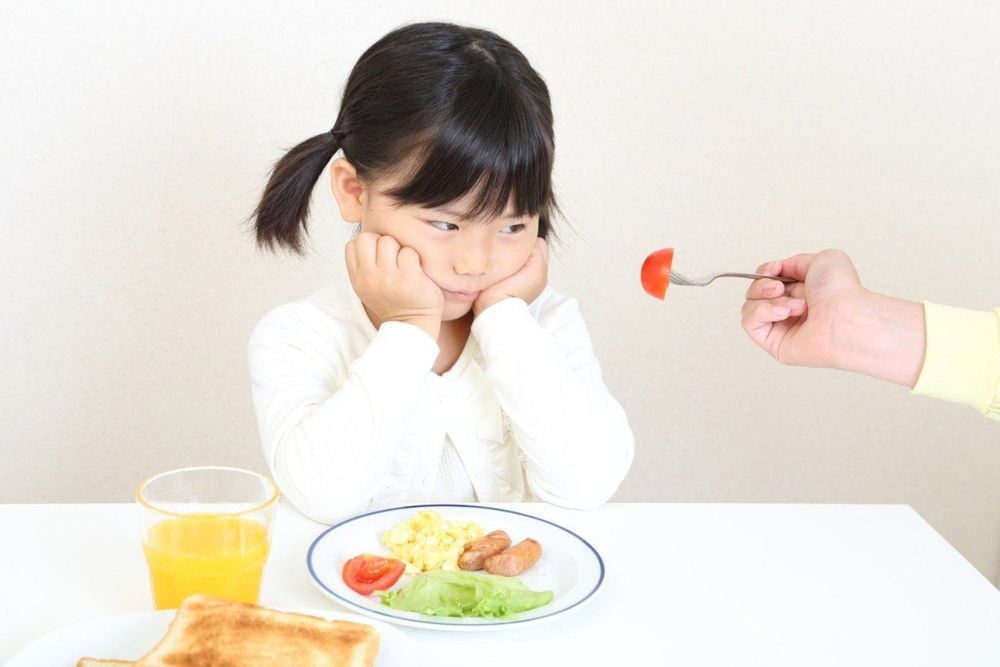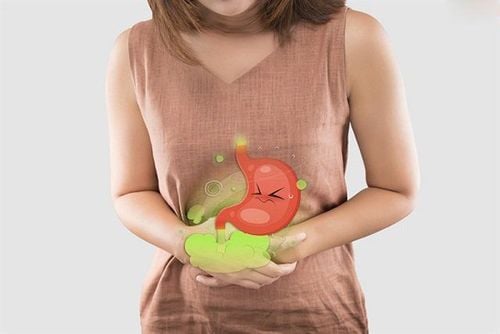This is an automatically translated article.
The article was professionally consulted by Dr., Doctor Phan Nguyen Thanh Binh - Head of the Department of Nutrition - Dietetics - Department of Pediatrics - Neonatology, Vinmec Central Park International General Hospital.Anorexia children are one of the very headache problems of parents today because it brings many consequences that affect the normal development of children such as stunting, impaired immune system, etc. growth retardation, lack of minerals such as calcium, zinc, iron, vitamins A, C, D, ... Most of children's malnutrition is caused by anorexia in children. Wanting to get rid of anorexia nervosa in children, requires parents to have understanding as well as perseverance in taking care of children.
1. Causes of anorexia in children
There are many causes of anorexia in children, including:Due to lack of nutrients from the time of pregnancy: The mother during pregnancy lacks substances such as calcium, iron, zinc, essential vitamins, .. . will cause the fetus to be deficient in nutrients and malnourished. As a result, babies born prematurely and underweight lead to lazy to breastfeed right from the first months after birth. Babies born naturally and with enough weight may be lazy to breastfeed, stop breastfeeding, or are eating formula milk naturally, reducing their intake or giving up formula altogether. Giving children complementary foods too early, an unbalanced diet with a lot of starch is also one of the reasons why children anorexic. Usually, the first few weeks of supplementing, children feel very appetizing, then they eat less due to the lack of vitamin B group (especially vitamin B1), iron, zinc, and magnesium. Due to physiological changes in children: When entering stages such as knowing how to turn over, sitting, crawling, walking, learning to talk,... children often lose their appetite. Even when healthy, children have periods when they eat less for a few days or weeks and still play normally. Those are the times when children are so busy exploring their body's abilities, learning and practicing new skills that they don't pay attention to eating. This stage is common in children 3 - 4 months, 9 - 12 months, 16 - 18 months, ... After that, children will return to eating and drinking normally. Unsuitable food is also one of the causes of anorexia in children. Children with pathological anorexia: When children have some diseases such as digestive disorders, infections, .. can make children anorexic.

Khi trẻ mắc một số bệnh lý như rối loạn tiêu hóa, nhiễm trùng
2. Signs of anorexia children
Children are considered anorexic when they have more than 2 of the following symptoms:Refuse to eat all the portion or the meal usually lasts more than 30 minutes. Eat less than 1/2 the portion size for your age. Hold food in your mouth for a long time and refuse to swallow. Refusing to eat, running away or crying at the sight of food. Have a nauseating reaction to the sight of food. No weight gain for 3 consecutive months.
3. To avoid anorexia for children, what should parents do?
Many parents think that letting their children go out to play, watching TV while eating is to create a happy and exciting atmosphere for children, to help them have a delicious meal, but that only distracts the child. At meals, making children feel that the meal is not important, and the food left for a long time will be cold, degenerate, easy to breed harmful bacteria for the child's intestinal tract. Therefore, to avoid anorexia for children, parents need to:Parents need to help children accept new foods - nutritious foods that the family wants to add to their children. Present the new food in front of the child's eyes in an eye-catching way, then the child's parents will model and encourage the child to touch the food starting from the finger up to the palm - arm - shoulder - cheek - pulse around the mouth. If the child tolerates or shows interest in the above activities, it means that the new food has gradually come closer to the child's mouth, but should not be rushed into the child's mouth but must let the child experience more about it. Taste the food by smelling, tasting and by this time the child will find it easy to eat them. Let the children eat with the family meal tray so that the children know the family atmosphere and the time when eating.

Cho trẻ ngồi ăn cùng mâm cơm gia đình để trẻ biết được không khí gia đình, giờ giấc khi ăn
Article referenced source: National Institute of Nutrition














